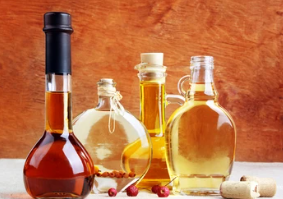Wine is composed of many chemical components and is a complex beverage. Approximately 600-800 compounds influence wine quality and consumer acceptance and preference because they affect sensory attributes such as aroma. For example, volatile compounds in wine affect aroma and flavor. Non-volatile compounds provide taste and tactile sensations. Organic acids affect the acidity and other sensory perceptions. Sugar and glycerin affect viscosity and density. Various techniques are available to extract various compounds from wine, with headspace analysis being the most commonly used technique. In addition, chromatographic techniques are widely used to quantify and identify compounds in wine research. In summary, information about the chemical properties and composition of wine is necessary to understand better the chemicals that make up wines that provide desirable organoleptic properties.

Wine extracts are concentrated forms of specific compounds extracted from wine, such as polyphenols, flavonoids, and other bioactive compounds. These extracts have potential health benefits, such as antioxidant, anti-inflammatory and anti-cancer effects, and are widely used in the food, dietary supplement, and cosmetic industries. We can analyze wine extracts in various forms, such as powder, capsule, and liquid concentrates. Lifeasible offers a one-stop solution for wine extract analysis.
Our wine extract analysis solutions can provide detailed information about the aroma and flavor components of wine extracts. In addition, we can provide information for developing new products and therapies for the food and pharmaceutical industries by detecting the levels of different bioactive compounds in wine. Our international level of testing has earned us the trust of many clients. If you are interested in our solutions, please contact us for a technical consultation and quotation.
Lifeasible has established a one-stop service platform for plants. In addition to obtaining customized solutions for plant genetic engineering, customers can also conduct follow-up analysis and research on plants through our analysis platform. The analytical services we provide include but are not limited to the following:
Why Do Plants Blush When They Are Hungry?
April 26, 2024
STU-CRISPR System Improves Plant Genome Editing Efficiency
April 19, 2024